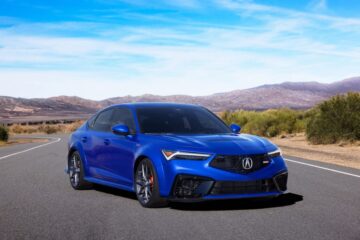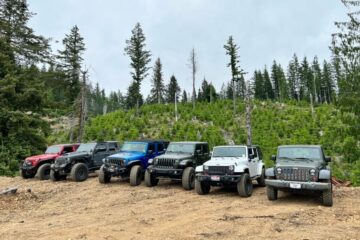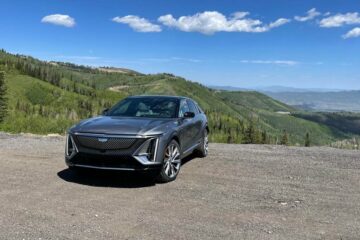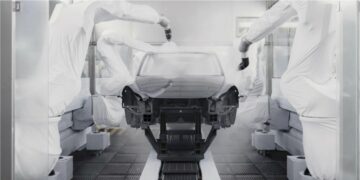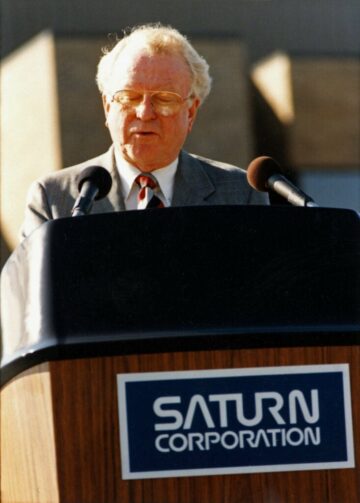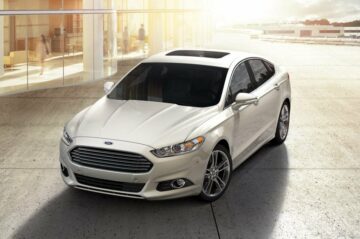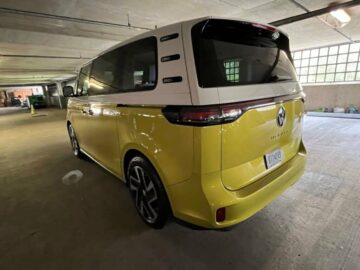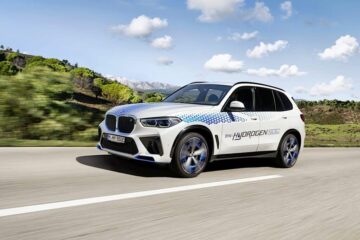Audi and Scout, two of the Volkswagen Group’s numerous automotive brands, are looking at opportunities to build vehicles in the United States, a move that could help them qualify for electric vehicle incentives under the Inflation Reduction Act, according to news reports in Germany and the U.S.
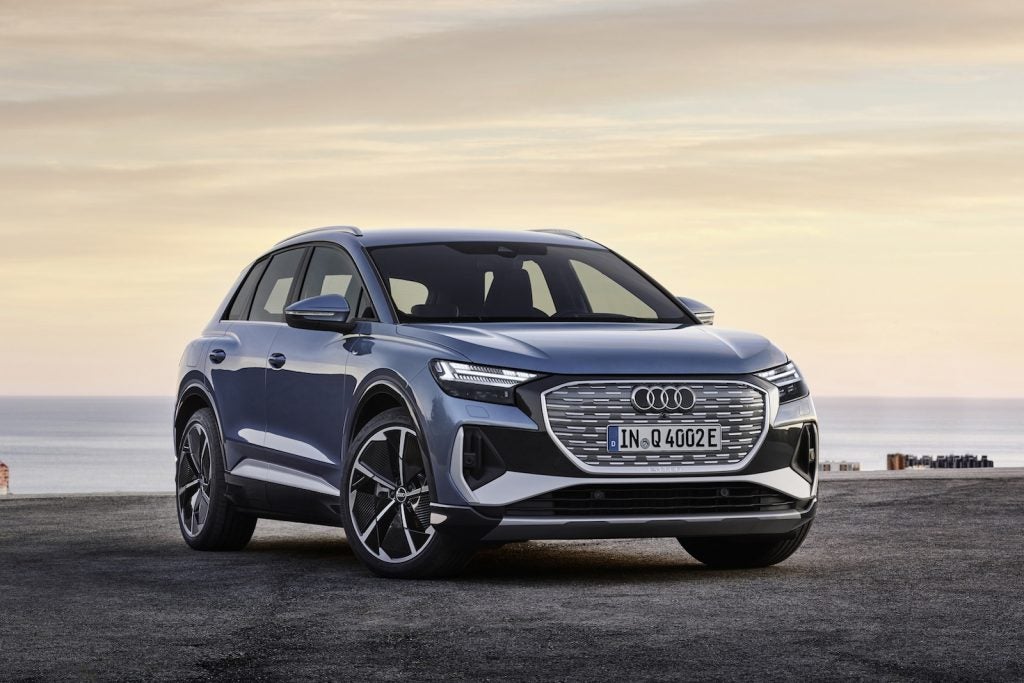
Audi already operates an assembly plant in Mexico but would like to add another dedicated EV plant in the U.S., CEO Markus Duesmann told the German newspaper, Frankfurter Allgemeine Sonntagszeitung. Separately, sources cited by Automobilwoche, the sibling publication of Automotive News, indicated that Scout is looking for its own U.S. plant site, with a target of going into operation in 2026.
“We do not have a factory in the U.S. yet. With the American government’s Inflation Reduction Act, building a U.S. plant for electric cars has of course become highly attractive,” Duesmann said in an interview with the Frankfurt newspaper.
Audi has been one of the most aggressive of the 12 VW Group car brands when it comes to going electric, starting with its original e-tron SUV and now adding several other models, including the e-tron GT and the Q4 e-tron, its latest addition.
EVs aimed at U.S. consumers
For its part, the Scout brand is planning to go 100% electric when it comes to market.
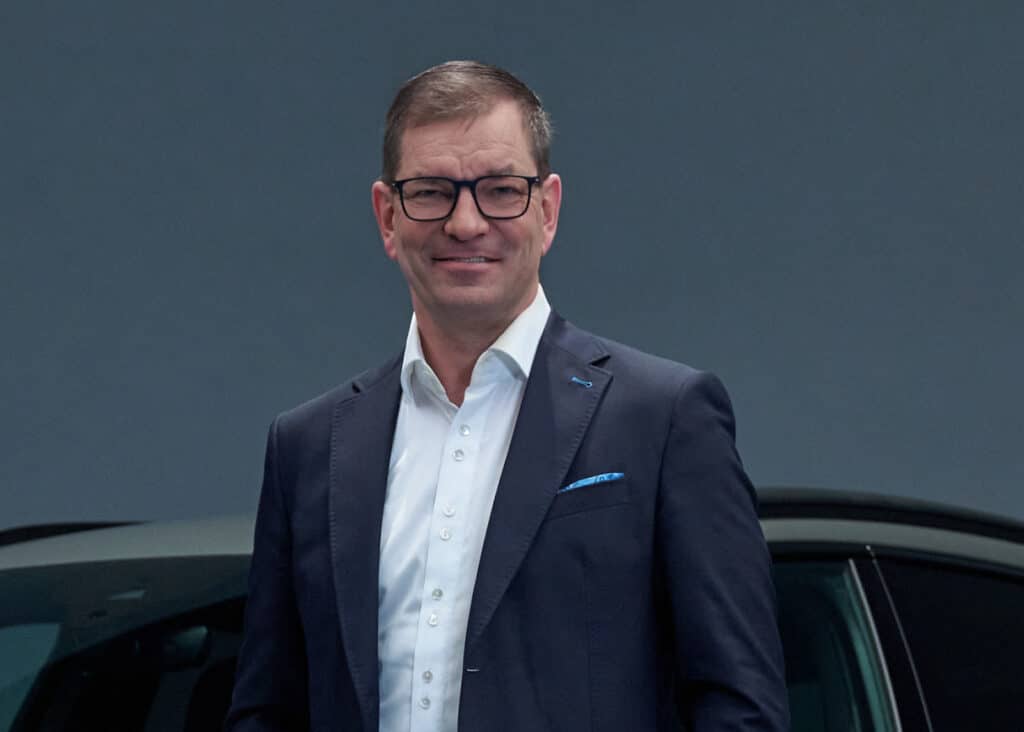
Originally introduced by International Harvester in 1960, Scout was one of the first brands to offer sport-utility vehicles, directly competing against the Jeep line. But its parent struggled to survive, eventually reemerging as Navistar. The Scout brand was pulled from the market in 1980 — ironically, just before the real surge in demand for SUVs began.
Volkswagen announced plans to buy the rights to the Scout name last May, and is expected to invest an initial $1 billion to re-launch the once-popular badge. After the acquisition it indicated that the first Scout concept vehicles will be revealed sometime in 2023.
As with Audi, Scout could benefit from operating a U.S. plant, especially if it begins sourcing raw materials and batteries here, as well. That would help it comply with the portion of the $430 billion IRA which replaced earlier federal EV incentive rules. Qualifying vehicles can offer buyers up to $7,500 in incentives. And manufacturers could qualify for additional federal subsidies, as well.
The act does set a number of stipulations, not only including the source of production but a cap on the income of an EV buyer, as well as limits on the price of a vehicle. That tops out at $55,000 for sedans, coupes and other passenger vehicles, while the limit is $80,000 for SUVs, pickups and vans.
Considering the sort of products Audi produces, that would suggest any U.S. assembly plant would focus on utility vehicles such as the new Q4 e-tron.
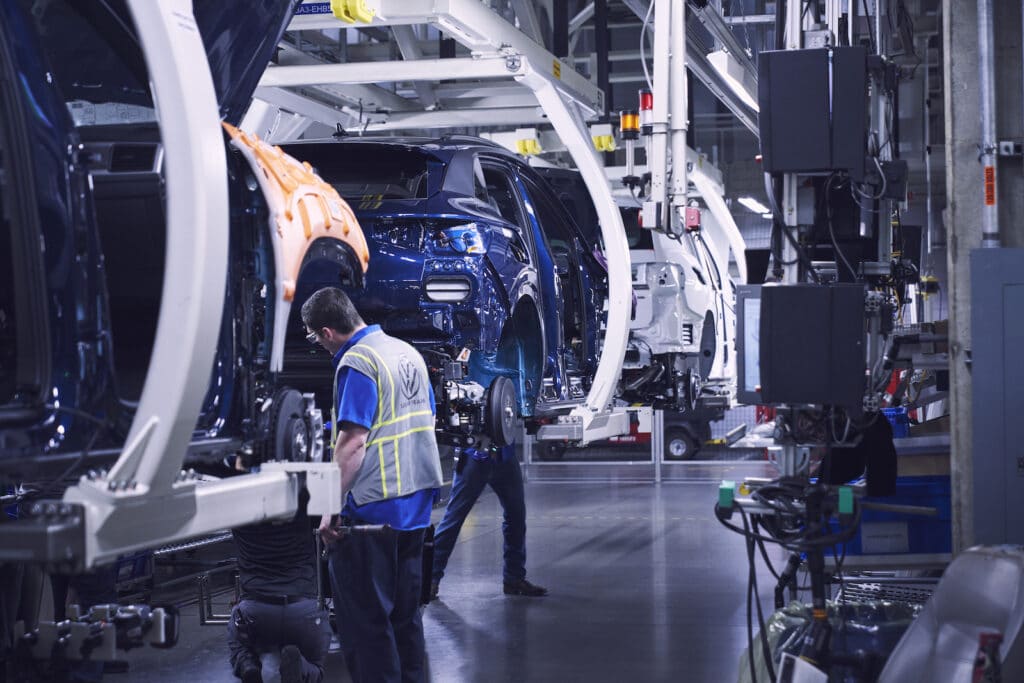
Scout, for its part, will focus exclusively on off-road-oriented vehicles, such as SUVs and pickups, reviving its competition with Jeep. That Stellantis brand is also beginning a migration to electrified vehicles. It offers two plug-in hybrids, including the Wrangler 4xe, and will soon follow with its first all-electric Jeep.
Compared to Jeep, plans for Scout appear to be modest, the Wall Street Journal quoting company sources indicating a sales target of around 250,000 vehicles annually. That would be in line with the output of a typical automotive assembly plant — though some facilities push to 400,000 or more.
EV already here
The Volkswagen Group last year began assembling its first EV in the U.S., a version of the VW ID.4 crossover rolling out of the plant in Chattanooga. That Tennessee facility underwent a nearly $1 billion expansion focused on electric vehicles. Volkswagen brand CEO Markus Schaefer told TheDetroitBureau.com last month that it will announce a second product for Chattanooga this year.
Audi and Scout could set up separate plants in the U.S., according to various sources. But there is the possibility that they might also team up to share the hefty cost of a new assembly facility.
“Both (options) are possible,” Duesmann told the Frankfurter Allgemeine Sonntagszeitung. “But the probability that we do it within the group is high,” he added, referencing a multi-brand project.
- SEO Powered Content & PR Distribution. Get Amplified Today.
- Platoblockchain. Web3 Metaverse Intelligence. Knowledge Amplified. Access Here.
- Source: https://www.thedetroitbureau.com/2023/02/audi-and-reborn-scout-brands-exploring-u-s-production-options/
- $1 billion
- 000
- 2022
- 2023
- a
- According
- acquisition
- Act
- added
- addition
- Additional
- After
- against
- aggressive
- all-electric
- already
- American
- and
- Announce
- announced
- Annually
- Another
- appear
- around
- Assembly
- attractive
- audi
- automotive
- batteries
- become
- before
- began
- Beginning
- benefit
- Billion
- body
- brand
- brands
- build
- Building
- buy
- buyers
- cap
- car
- cars
- ceo
- chairman
- cited
- COM
- company
- competing
- competition
- concept
- considering
- Cost
- could
- course
- dedicated
- Demand
- directly
- Earlier
- Electric
- electric cars
- electric vehicle
- electric vehicles
- especially
- EV
- eventually
- exclusively
- expansion
- expected
- Exploring
- facilities
- Facility
- factory
- Federal
- First
- Focus
- focused
- follow
- from
- front
- German
- Germany
- Go
- going
- Government
- Group
- Group’s
- help
- here
- High
- highly
- HTTPS
- in
- Incentive
- Incentives
- Including
- Income
- indicated
- inflation
- initial
- International
- Interview
- introduced
- Invest
- Ironically
- IT
- jeep
- journal
- Last
- Last Year
- latest
- LIMIT
- limits
- Line
- looking
- Manufacturers
- Market
- materials
- max-width
- Mexico
- might
- migration
- models
- Month
- more
- most
- move
- name
- nearly
- New
- news
- number
- numerous
- offer
- Offers
- ONE
- operates
- operating
- operation
- opportunities
- Options
- original
- Other
- Others
- own
- part
- plans
- plants
- plato
- Plato Data Intelligence
- PlatoData
- possibility
- possible
- price
- probability
- produce
- Product
- Production
- Products
- project
- Publication
- Push
- qualify
- qualifying
- Raw
- real
- Reborn
- recently
- replaced
- Reports
- Revealed
- rights
- Rolling
- rules
- Said
- sales
- Scout
- Second
- sedans
- separate
- separately
- set
- several
- Share
- site
- some
- Soon
- Source
- Sources
- Sourcing
- Starting
- States
- street
- such
- surge
- survive
- SUVs
- Target
- team
- The
- The Source
- The Wall Street Journal
- this year
- to
- Tops
- typical
- u.s.
- under
- United
- United States
- utility
- various
- vehicle
- Vehicles
- version
- volkswagen
- Volkswagen Group
- vw
- Wall Street
- Wall Street Journal
- which
- while
- will
- within
- would
- year
- zephyrnet


